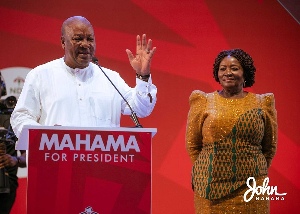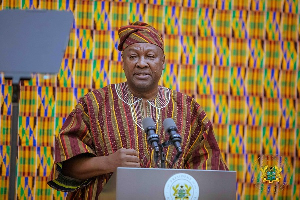By Alex Bossman Baafi
It is the sacred duty of the government to create an enabling environment for businesses to grow in order to create jobs and wealth in the country. The government can achieve this through its macroeconomic policy which aims principally to achieve two goals. First, to ensure that economic growth and inflation are at acceptable levels at all times. And second, to create stable economic environment in which the economy can be vibrantly flourishing by curtailing fluctuations in economic activities. Thus, the government can create a more favorable environment for businesses to grow. There are several macroeconomic variables that the government should make extra efforts to control in order to attain these desirable macroeconomic objectives and these can be grouped under four main headings of Inflation, economic growth, unemployment, and balance of payment.
Inflation
Inflation means a general rise in prices throughout the economy. The government’s duty here is to keep inflation low and stable. One of the most important reasons for this is that it will facilitate the process of economic decision making. That is to say, businesses will be able to set prices and wage rates and also make investment decision with confidence. Available figures show that inflation was 12% in 1992, got up to 25.2% in 2000 fell to 18.1% in 2008 and it is now around 9.52%. Higher inflation leads to lack of economic growth because it creates uncertainty and makes trade and investments decision making very risky. On the international markets, it makes our domestic exports less competitive and imports cheaper. Such situation bleeds economic atmosphere where our economy always runs into balance of payments deficits, leading to lack of economic growth, unemployment and compounds our already heavy burden of poverty and underdevelopment. Inflation also leads to depreciation in the exchange rates thereby worsening the country’s current account position with our international trading partners. This makes our economy unable to compete with its international rivals in the global market, and always depending on donor supports and international financial institutions for our survival. 53 years of independence we have not been able to help ourselves economically and always running in circles in chase of our own shadows since most of our political and economic leaders have blindly refused to care for the poor because of their greed and selfish interests. Politics has now become lucrative business on our part of the world. Virtually everybody enters into it not because of what they have to offer the nation but what they can loot from the nation.
Inflation at the end of January 2010 was 15.97%, 13.32% in March and further eased down to 11.66% at the end of April and further dropped to 9.52% at the end of last month. Yes, the government’s objective of hitting a single inflationary digit by the end of the year is on course. The point is that we have been here before and had slacked back to higher inflationary figures time and again as the history of the country depicts. What is important is to see that the consistent reduction in inflation passes through to lending rates to reduce the cost of credit and restore and sustain economic growth. What are we doing differently this time to make sure we experience sustained long-term growth devoid of fluctuations as had been witnessed since independence? This is where our policy makers must set themselves apart to make a difference because people who continue to live as their old grand parents did are not susceptible to any progressive change, we must remember.
Economic growth
The government must work hard to achieve higher rates of economic growth over the long term. Growth that is sustainable and sustained over many years and not just for a short period of time. This should be done with the determined effort to achieve stable growth avoiding both recessions and excessive short term growth that cannot be sustained. Normally governments go all out and are happy to give the economy an excessive boom during election years. Since independence, various successive governments have contributed their quota in terms of creating vibrant economic growth for prosperity. Available statistics show that the Gross Domestic Product (GDP) was 5% in 1966, 3% in 1972, 1.7% in 1979, 3% in 1981, 5.2% in 1991, and 3% in 2000. From the forgone figures, one could say with adequate certainty that economic growth fluctuations make any meaningful progress notoriously difficult. Since then the country experienced a remarkable rates averaging 6% over the years till its impressive performance of 7.3% at the end of 2008. After 8 years of sustained growth, fluctuation had set in again as the end of year growth for 2009 was 4.7%. This has been the problem of many developing countries including ours. To lift ourselves from the poverty trap, frantic efforts must be made to speed up the growth of our economy at an appreciable level. We must target growth rates between 9 and 10 % annually if our millennium development goal of achieving a middle income economy status by 2015 is to be achieved. All the political and economic leaders so far have failed to set such ambitious yet achievable targets and moving heaven and earth to achieve them. It will only require hard work, dedication and sacrifice with focused leadership to achieve such a remarkable economic growth rates. Countries such as China, Korea, India and Brazil have shown the way and we must follow suit.
Unemployment
One of the cardinal aims of the government must be to ensure that unemployment is as low as possible, not only for the sake of the unemployed themselves but it represents a waste of human resources and a drain from the national economy. A nation’s wealth is created using other inputs by its human capital. No matter the technology, strategy or ideas, we depend on people as the most valuable asset of every nation. It is therefore imperative for us to make good use of our human capital. We must not loose sight of the fact that unemployment level in this country is estimated around 13% of the total labour force. A situation where we have such a proportion of the labour force as jobless is a serious socio-economic problem. We must know that our unemployed people are without incomes, the longer the people become unemployed the more dispirited they become. Their self esteem continues to fall making them succumbing to stress related illnesses. They find it very difficult to maintain dear ones, friends, relatives and their personal relations of all forms get strained. There is widespread desperation among our army of jobless youth leading to increase in domestic violence, more broken homes, kayayei, child labour, increased in armed robbery and what have you. The nation itself looses heavily as result of lack of revenue from personal incomes and corporate taxes and therefore the total national income (GDP) is always lower than its potential capacity. These are the real issues that should occupy our political and economic leaders day and night with passion instead of lording on the very down- trodden people they were suppose to serve.
Balance of payment
It is the government’s responsibility to provide an environment in which exports can grow without an excessive growth in imports and also aim to create a climate in which the country’s foreign currency earnings at least match or preferably exceed the country’s demand for foreign currency. That is working hard to achieve a favourable balance of payments. For example, the achievement of a favourable balance of payments depends, in part, on whether changes in exchange rates allow the country’s goods and services to remain price competitive on the international markets. A lower exchange rates, say fewer dollars, euros, yen, pounds etc, to the cedi will make Ghana goods cheaper to international or overseas buyers and that goes a long way to boost Ghana’s exports which is why the government must be commended for controlling inflation and hence exchange rates for the wellbeing of the economy.
Judging from our current situation where we still depend on rain-fed agriculture, even if the international trade conditions become favourable as a result of exchange rate depreciation that make our exports more competitive (cheaper), we cannot capitalize on that to export more. However, I believe we have a competitive advantage in the exports of certain non traditional items like mangoes, banana, pineapples to mention a few, into the European and other international markets. The ministry of Agriculture in collaboration with the Ghana Export Promotion Centre could design an incentive package for our farmers. These may include setting up buying agencies like what is done for the purchasing and marketing of cocoa in the country. There are banks in the country that are capable and willing to extend credit to farmers but for want of collaterals these financial institutions are unable to advance credit. We must be able to do something to assist farmers to get access to credit not to mention provision of technical assistance and the supply of subsidised inputs to farmers. We should also make consistent efforts to add value to our products before exporting them. We must revisit our agro-industrial base and try to boost our industrial sector in order to improve our balance of payment position as a country.
In my candid opinion, when our policy makers really appreciate the significance of Inflation, economic growth, unemployment, and balance of payments challenges and make it a duty to tackle them with all the seriousness they deserve, we will be making progress than we have done. This is not the time for politics and complacency. The real challenge is how to simulate economic growth and development in the face of declining inflation. To make a mark, to leave a legacy, to lift the nation from poverty, diseases and underdevelopment, this is the challenge the government must not fail the good people of this country.
Email: abkbossman@yahoo.co.uk
Opinions of Friday, 23 July 2010
Columnist: Baafi, Alex Bossman














